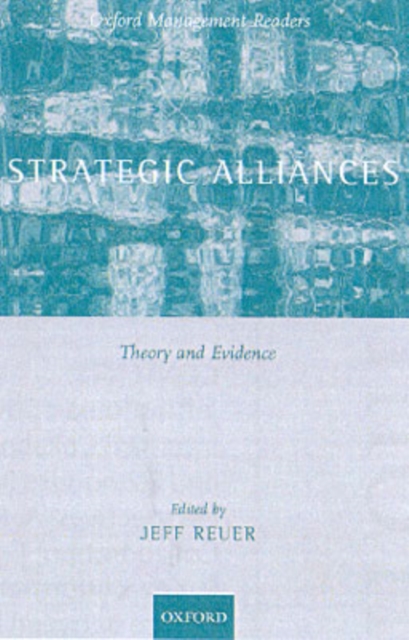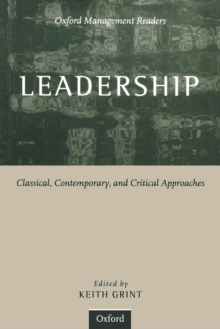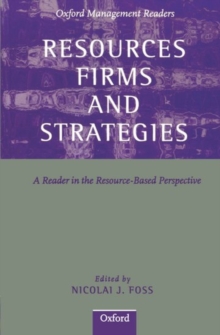
Strategic Alliances : Theory and Evidence Paperback / softback
Edited by Jeffrey J. (, Ohio State University) Reuer
Part of the Oxford Management Readers series
Paperback / softback
Description
This reader will provide an introduction to the basic theories and concepts in the area of collaborative strategy as well as an overview of current evidence on alliances.
Alliance research has become something of a cottage industry, with scores of recent articles on the subject.
Thus, one aim of the book is to provide readers with a road map of where to start for some of the most important perspectives on collaborative strategy.
The book begins with articles presenting a broad picture of alliance research.
Each of these pieces individually provides a solid and helpful literature review and introduction to the topic.
The book then considers economic perspectives on alliances, which examine the question of what prompts firms to enter into collaboration with others, and when alliances are suitable relative to alternatives such as internal development and acquisitions.
The third portion of the book takes up real options, an emerging perspective which is currently popular in the strategy field as a whole, and has likewise changed how one thinks about alliance motives and what determines the usefulness of short-lived collaborations for parent firms.
This section offers the pioneering piece as well as some empirical evidence relating to the prospects for this new perspective on alliances.
The book then considers learning perspectives on alliances.
This section begins with work examining learning within individual alliances and the competitive processes that shape the dynamics of inter-firm collaboration.
It then proceeds to address the question of whether firms can develop an alliance capability in general and through accumulated experience in particular.
The concluding section introduces readers to relational perspectives of collaborative strategy.
Information
-
Out of stock
- Format:Paperback / softback
- Pages:476 pages
- Publisher:Oxford University Press
- Publication Date:04/03/2004
- Category:
- ISBN:9780199256556
Information
-
Out of stock
- Format:Paperback / softback
- Pages:476 pages
- Publisher:Oxford University Press
- Publication Date:04/03/2004
- Category:
- ISBN:9780199256556










